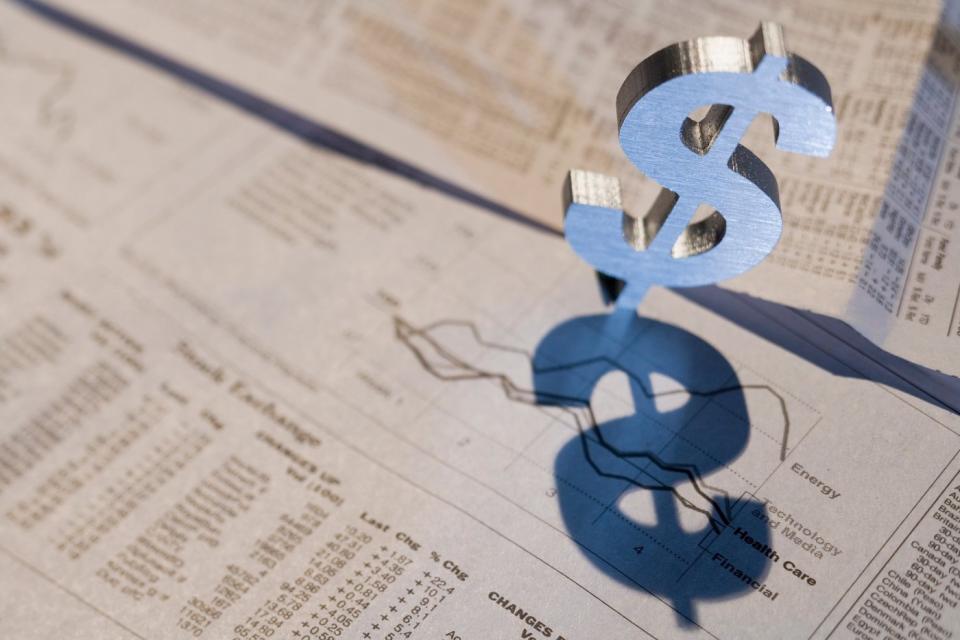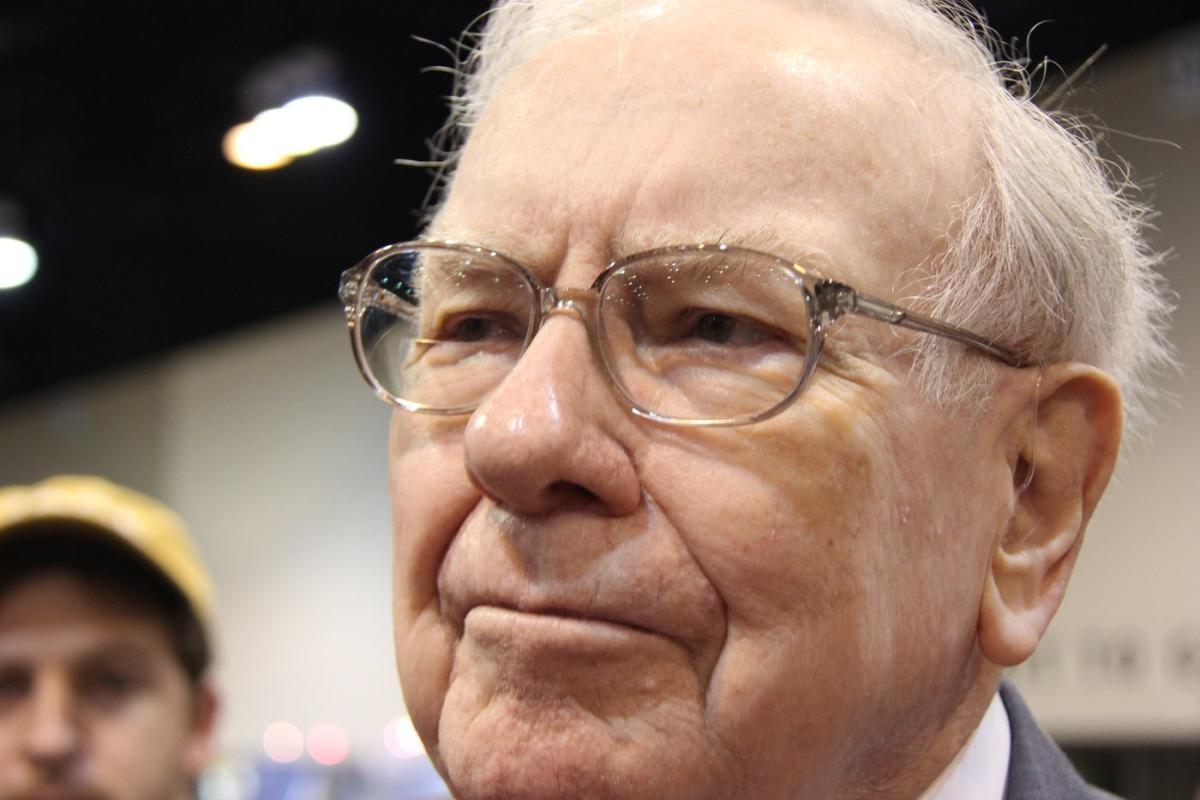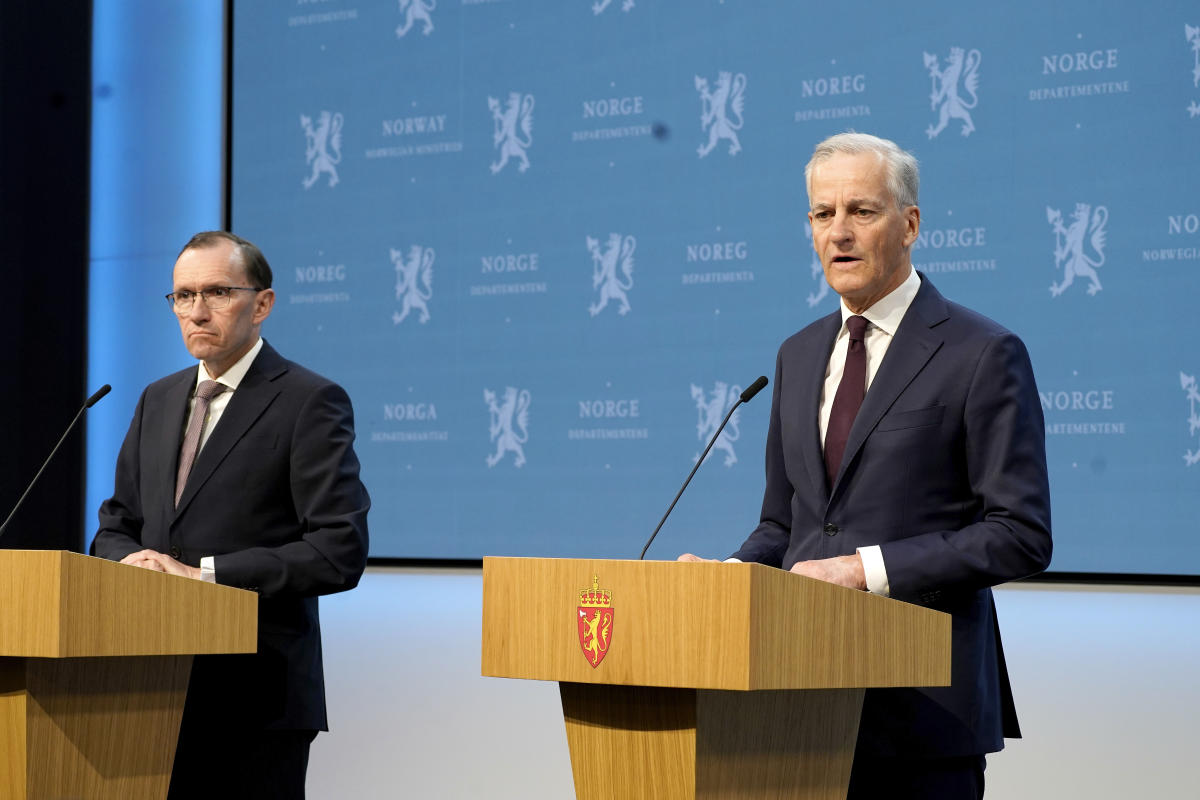In case you missed it, what’s arguably the most important data release of the second quarter occurred last week — and I’m not talking about the monthly inflation report from the Bureau of Labor Statistics.
May 15 marked the deadline for institutional money managers and wealthy investors with at least $100 million in assets under management to file Form 13F with the Securities and Exchange Commission (SEC). A 13F provides a portfolio snapshot that allows professional and everyday investors an under-the-hood look at what Wall Street’s most-admired investors have been buying, selling, and holding.
To be fair, 13Fs aren’t perfect. These snapshots can be up to 45 days old when filed with the SEC. Nevertheless, 13Fs can alert investors to the stocks, industries, and trends that are piquing the interest of successful/billionaire money managers.
There’s not a 13F on Wall Street that’s more anticipated each quarter than that of Berkshire Hathaway (NYSE: BRK.A)(NYSE: BRK.B). CEO Warren Buffett has delivered a greater than 5,000,000% aggregate return to his Class A shareholders (BRK.A) since taking the reins in the mid-1960s, and has practically doubled-up the annualized total return, including dividends, of the benchmark S&P 500 over six decades.
Based on Berkshire’s 13F for the quarter ended in March, Warren Buffett and his top investment aides, Todd Combs and Ted Weschler, are overseeing 44 stocks across the company’s roughly $378 billion portfolio. Note, I’ve excluded the two index funds Berkshire Hathaway holds small stakes in — the SPDR S&P 500 ETF and Vanguard S&P 500 ETF — because index funds represent baskets of securities and aren’t themselves stocks. I’ve also removed Paramount Global, which Buffett admitted to selling in its entirety during Berkshire’s annual shareholder meeting.
What follows is a comprehensive breakdown of the Oracle of Omaha’s portfolio at Berkshire Hathaway.
The Oracle of Omaha’s core investments
Despite putting $378 billion to work in 44 stocks, Warren Buffett and his team run a highly concentrated portfolio. This is to say that Buffett invests more of his company’s capital in his top ideas. As of the closing bell on May 17, eight of Berkshire’s holdings had a market value in excess of $10 billion, with these eight core holdings accounting for 82% of the company’s $377.6 billion portfolio.
-
Apple (NASDAQ: AAPL): $149,766,876,019 in market value
-
Bank of America (NYSE: BAC): $40,529,112,715
-
American Express (NYSE: AXP): $36,794,400,783
-
Coca-Cola: $25,244,000,000
-
Chevron (NYSE: CVX): $19,983,053,835
-
Occidental Petroleum (NYSE: OXY): $15,687,146,596
-
Kraft Heinz: $11,719,597,100
-
Moody’s: $10,138,291,967
Even after selling more than 116 million shares of Apple during the first quarter, this tech giant still accounts for nearly 40% of Berkshire’s invested assets.
While Buffett has never been a tech-savvy investor, he understands consumer buying habits very well. Apple has a loyal customer base and has historically leaned on its physical product and subscription service innovation to drive its growth. It also doesn’t hurt that Apple has repurchased a jaw-dropping $674 billion worth of its common stock since 2013 began. Buybacks of this magnitude have helped increase Berkshire’s ownership stake in Apple, as well as provided a boost to the company’s earnings per share (EPS).
You’ll note two other trends among the Oracle of Omaha’s core investments: a heavy dose of financials and energy stocks.
With regard to the former, Buffett appreciates cyclical businesses that grow in lockstep with the U.S. economy. Bank of America, which is the most interest rate-sensitive large bank in the U.S., is able to expand its loan portfolio during long-winded periods of economic growth. Meanwhile, American Express benefits from playing both sides of the transaction aisle. It generates fees by processing transactions for merchants, and also acts as a lender, generating possible annual fees and interest income from its cardholders.
Although energy stocks haven’t historically comprised a sizable percentage of Berkshire Hathaway’s portfolio, Buffett and his crew have absolutely piled into Chevron and Occidental Petroleum. These are integrated energy companies that generate their juiciest margins from their upstream drilling segments. If the spot price of crude oil remains elevated due to constrained global supply, Chevron and Occidental should bring in plenty of operating cash flow. Just keep in mind that while Chevron has one of the most flexible balance sheets among energy majors, Occidental Petroleum is still digging itself out of a sizable debt-driven hole.

The other billion-dollar wagers at Berkshire Hathaway
Even with a jaw-dropping percentage of Berkshire’s portfolio put to work in the eight core companies listed above, there are still 20 additional stocks Buffett and his team are invested in that have a market value ranging between $1 billion and $8 billion.
-
Mitsubishi: $7,766,903,245
-
Chubb: $7,126,722,854
-
Mitsui: $6,400,541,253
-
Itochu: $5,515,170,124
-
DaVita: $5,043,273,040
-
Citigroup: $3,553,897,791
-
Marubeni: $2,710,573,632
-
Kroger: $2,703,500,000
-
Sumitomo: $2,672,029,041
-
BYD: $2,514,497,175
-
Visa (NYSE: V): $2,325,861,013
-
VeriSign: $2,184,421,236
-
Amazon (NASDAQ: AMZN): $1,848,100,000
-
Mastercard (NYSE: MA): $1,834,575,677
-
Capital One Financial: $1,766,147,269
-
Liberty SiriusXM Series C: $1,713,670,919
-
Nu Holdings: $1,247,933,834
-
Aon: $1,194,945,000
-
Ally Financial: $1,247,933,834
-
Charter Communications: $1,049,933,912
These “other” billion-dollar bets are comprised of a heavy-dose of financial stocks (Warren Buffett’s favorite sector), some of the Oracle of Omaha’s “indefinite” holdings, and a sprinkling of ideas from Todd Combs and Ted Weschler.
The Oracle’s love of financials is on full display with market share-leading payment processors Visa and Mastercard accounting for more than $4.1 billion of invested assets. In 2022, Visa and Mastercard combined for approximately 69% of credit card network purchase volume in the United States. Both companies have exceptionally long runways with which to organically or acquisitively expand their payment infrastructure into chronically underbanked emerging markets.
This billion-dollar bet section also contains Berkshire’s notable investments in Japan’s five largest trading houses (Mitsubishi, Mitsui, Itochu, Marubeni, and Sumitomo). These are highly diverse companies that have their hands in multiple sectors and industries within Japan’s economy. In Buffett’s latest annual letter to shareholders, he described these trading houses as “indefinite” holdings for his company.
Lastly, this is the section where we begin to really see the influence of Todd Combs and Ted Weschler take shape. For example, e-commerce company Amazon isn’t a stock that Warren Buffett purchased. Though the Oracle of Omaha appreciates Amazon and, in hindsight, regrets not buying it sooner, the company’s primary cash flow drivers, such as cloud infrastructure service platform Amazon Web Services (AWS), are beyond his typical scope of research and/or interest. AWS is currently pacing more than $100 billion in annual run-rate revenue.
Warren Buffett’s smaller holdings
The final section of Berkshire’s approximately $378 billion portfolio is comprised of 16 smaller holdings that range in value from a low of $8.7 million to about $995 million.
-
Snowflake: $994,883,570
-
Liberty SiriusXM Series A: $861,964,366
-
T-Mobile: $859,111,380
-
Louisiana-Pacific: $589,460,585
-
Floor & Décor: $567,290,400
-
Liberty Formula One Series C: $555,939,247
-
Liberty Live Series C: $442,297,801
-
Liberty Live Series A: $193,488,459
-
Sirius XM Holdings: $111,146,193
-
NVR (NYSE: NVR): $85,437,168
-
Diageo: $32,456,653
-
Lennar Class B (NYSE: LEN.B): $23,375,556
-
Liberty Latin America Series A: $22,993,122
-
Jefferies Financial Group: $20,377,226
-
Liberty Latin America Series C: $11,235,175
-
Atlanta Braves Holdings Series C: $8,733,337
These smaller holdings are traditionally where we see Combs and Weschler exercise their influence. As you can see from these 16 companies listed above, there’s a focus on finding value in a generally pricey stock market.
For instance, Berkshire Hathaway’s brightest minds began making investments in homebuilders during the second quarter of 2023. Although the largest position, which was a stake in D.R. Horton, has been sold, Combs and Weschler are still overseeing close to $109 million in invested assets between NVR and Lennar.
Shares of industry-leading homebuilder Lennar can be had for about 10 times forward-year earnings at a time when the S&P 500’s Shiller price-to-earnings ratio is historically high. Meanwhile, NVR (the parent of Ryan Homes) has a higher price-to-earnings ratio than its peers, but also operates a land-light model that relies on lot purchase agreements (LPAs). Instead of buying and developing land like its peers, its puts down a small, nonrefundable deposit via LPAs that doesn’t tie up much of its capital. This has allowed NVR to grow at a considerably faster pace than its peers.
While it’s always possible for one of these smaller holdings to eventually become a core holding at Berkshire Hathaway, these sub-$1-billion-dollar stakes are better viewed as shorter-term investments (one-to-five years).
Should you invest $1,000 in Berkshire Hathaway right now?
Before you buy stock in Berkshire Hathaway, consider this:
The Motley Fool Stock Advisor analyst team just identified what they believe are the 10 best stocks for investors to buy now… and Berkshire Hathaway wasn’t one of them. The 10 stocks that made the cut could produce monster returns in the coming years.
Consider when Nvidia made this list on April 15, 2005… if you invested $1,000 at the time of our recommendation, you’d have $580,722!*
Stock Advisor provides investors with an easy-to-follow blueprint for success, including guidance on building a portfolio, regular updates from analysts, and two new stock picks each month. The Stock Advisor service has more than quadrupled the return of S&P 500 since 2002*.
*Stock Advisor returns as of May 13, 2024
Ally, American Express, Bank of America, and Citigroup are advertising partners of The Ascent, a Motley Fool company. John Mackey, former CEO of Whole Foods Market, an Amazon subsidiary, is a member of The Motley Fool’s board of directors. Sean Williams has positions in Amazon, Bank of America, Mastercard, Sirius XM, and Visa. The Motley Fool has positions in and recommends Amazon, Apple, BYD, Bank of America, Berkshire Hathaway, Chevron, Jefferies Financial Group, Lennar, Mastercard, Moody’s, NVR, Snowflake, Vanguard S&P 500 ETF, VeriSign, and Visa. The Motley Fool recommends Diageo Plc, Kraft Heinz, Kroger, Nu Holdings, Occidental Petroleum, and T-Mobile US and recommends the following options: long January 2025 $370 calls on Mastercard and short January 2025 $380 calls on Mastercard. The Motley Fool has a disclosure policy.
Here Are All 44 Stocks Warren Buffett Holds for Berkshire Hathaway’s $378 Billion Portfolio was originally published by The Motley Fool








